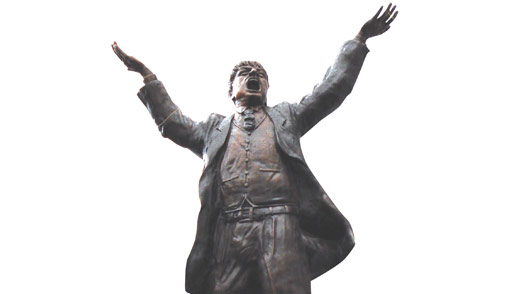Trade Union Desk


ICTU’s John O’Farrell argues that the main benefit for installing decency into every workplace isn’t merely financial.
On the same week as the taxpayer-owned Ulster Bank decided to cull another 11 branches from its diminished network, a shop in Cushendall closed after 200 years of business. Years of competition from supermarket chains, then online shopping, had squeezed McAlister’s margins. But the tipping point was the closure of the local bank: “Another thing that surprised me was the closure of the village’s Northern Bank four years ago,” said Andrew McAlister. “I lost about 15 per cent of turnover and never got it back.”
Things are being squeezed until the pips have squeaked their last. Post Offices have been privatised, sold to property speculators and their services hived off to convenience stores. Even Jobs and Benefits offices are facing closure at the same time as the government rolls out huge and insufficiently considered changes to the benefits system.
Things are degrading, from the cradle to the grave. The Education Authority needs to make ‘efficiencies’ and closed Outdoor Education Centres. Health Trusts are handed ultimatums for a certain amount of ‘savings’, and trim beds for the infirm and medical help for the infertile.
Then the budget was wheeled out with the ceremony and humour of an autopsy, dashing the hopes of public servants long past the point of simple frustration at the stubborn insistence of millionaires imposing a pay cap on millions of people who have never thought of availing of offshore financial advice. And then, before we all die, we have a multi-tiered pension system where those about to retire will live like Lords in comparison to the Serfs just starting to make their contributions, as retirement gets later and the rewards grow fewer.
The perniciousness extends to every corner of the economy. The term ‘precarious employment’ refers to all kinds of indecent or poor-quality work, including insecure work, low-paid work, work with limited or no benefits (health care, pension, bonuses, etc.), work in unsafe or unhealthy workplaces, work in the informal economy, work with no or inadequate access to training among others. Use of the term in this way comes from the point of view that precarious employment amounts to a deterioration of all working conditions.
What used to be the exception is developing like a virus into the ‘New Normal’. A recent ICTU report utilised research from Lisa Wilson, a labour market expert from the Nevin Economic Research Institute:
• Some 6 per cent of the Northern Ireland workforce is employed in temporary, non-permanent arrangements.
• 11.4 per cent of the workforce is self-employed without employees.
• The number of workers who are self-employed without employees has increased significantly since 2008.
• Most significant has been the more than doubling in the numbers who are part-time self-employed without employees.
• There has been a 25 per cent increase in the number of workers who are in temporary employment, over the period 2008 to 2016.
• There has been a 43 per cent increase in the numbers in involuntary temporary employment and a 35 per cent increase in the numbers that are involuntary part-time employed, over the period 2008 to 2016.
Self-employed workers have no right to paid sick, holiday, maternity or paternity leave, redundancy pay or protection against unfair dismissal. It is both instructive and alarming to look at the incidence of self-employment without employees to get a sense of if and how the labour market is moving toward this more insecure employment arrangement.
The point about precarious employment is that it is employment which is insecure, uncertain or unpredictable from the point of view of the worker. In other words, the usual rationales for shoddy exploitation proffered by a government spokesman or one of their privatised proxies in the think-tanks, do not apply. Workers know when they are stuck in some crappy job.
Those jobs tend to be concentrated at the low-skilled end of the economy; they tend to be the outsourced parts of health and social care, those pulling pints and cleaning hotel rooms in the seasonal tourism trade, or outdoor (yet strangely unseen) occupations in agriculture, fishing or construction, where bogus self-employment is the norm.
Very few of the most exploitive jobs are unionised. Which is why they are so grossly exploitive. That is why Decent Work is one of their main goals of the major trade union campaign, Better Work Better Lives.





